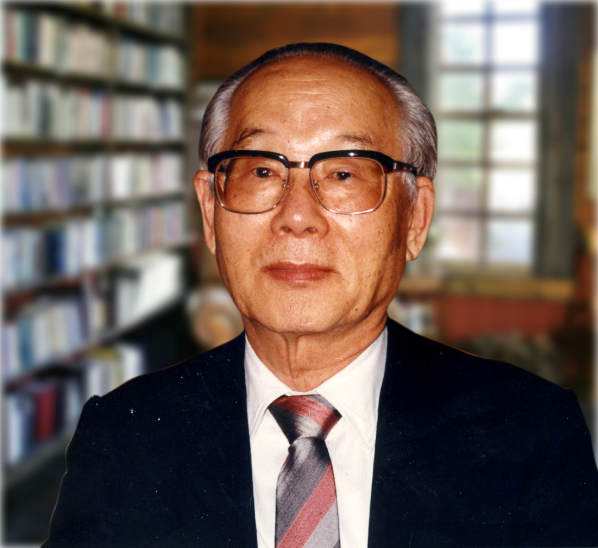The “land of the morning calm,†as Koreans poetically refer to their country, tragically during the past 100 years experienced one of the most violent and destructive chapters in its 30-odd centuries of history. Isolation of the “hermit kingdom†was shattered by Japanese penetration after 1876, with harsher colonization following the abortive Korean independence revolt in 1919. As Japan’s aggression spread to Manchuria and China in the 1930s, Koreans were conscripted for labor and military service.
Even independence at the close of World War II was incomplete as Korea was partitioned at the 38th parallel and Communists in the north blocked a United Nations call for unifying elections. Red Army attacks upon South Korea in June 1950 inaugurated massive destruction as cities were reduced to rubble, roads and bridges wrecked and farm livestock lost to marauding soldiers. Amidst the conflict and confusion, families were separated and between two and three million Korean lives were lost. Like many Korean Christians, Dr. CHANG KEE-RYO fled from the north during this civil war, leaving behind his wife and all but one of his children in what has proved to be a lasting separation.
Son of a devoutly religious family, CHANG had systematically prepared himself for service to the poor, graduating first from Seoul Medical College, then presenting his thesis and receiving his Ph.D. from Nagoya Imperial University College of Medicine in Japan. From 1940 to 1950 he was director of surgery at the Pyongyang Union Christian Hospital.
As millions of refugees, along with retreating South Korean soldiers, pushed down to within the “Pusan perimeter†in the tumultuous late summer of 1950, the sick and wounded were crowded into makeshift shacks in the camps. It was in this crisis that Dr. CHANG organized three squad tents into a clinic to treat war victims. In time this grew to become the Pusan Gospel Hospital with 180 beds, a staff of more than 200 and a 120-student nursing school.
In the hectic era of the past quarter of a century as South Korea has struggled to rebuild, life for most ordinary citizens has been hard. At first a meager diet, chronic unemployment and low wages compounded the suffering of families seeking survival despite loss of homes, schools and most public services. It was to meet the urgent need for medical care for the poor that 11 years ago Dr. CHANG enlisted the deacons of the churches in the Pusan region to organize Korea’s first medical cooperative in partnership with the Pusan Gospel Hospital; monthly dues for the first 700 who joined were 60 won (22 U.S. cents), when a package of cigarettes cost 100 won. A second medical insurance group amalgamated with it in April 1969 to form the Blue Cross Medical Cooperative whose membership grew to more than 20,000 by 1975.
As the medical cooperative has gained strength, it has sustained a commitment to service. Specifically, membership fees are kept low, clinics are established where members can readily reach them, all members receive regular checkups as part of systematic preventive medicine, and a spirit of cooperation and mutual trust is fostered. Through it all Dr. CHANG, now 70, has sustained his spartan selfless service, always giving rather than taking and, through his tireless treatment of those in need, continuing to give meaning to his Christian faith.
In electing Dr. CHANG KEE-RYO to receive the 1979 Ramon Magsaysay Award for Public Service, the Board of Trustees recognizes his practical, personal Christian charity in founding the Blue Cross Medical Cooperative in Pusan.
It is my great honor to have this opportunity of receiving the Ramon Magsaysay Award in this presentation ceremony, the 72nd birth anniversary of the late Ramon Magsaysay, your excellent and great leader. This is an honor, not only for myself, but for all the people of Korea. For this honor I am thankful to God, to the members of the Board of Trustees, and to all my friends who have helped me and made his possible.
I came down to South Korea as one of the refugees in December 1950 when Korea was at war. In Pusan I began to offer free medical treatment to poor patients. This work continued for six years with the assistance of the United Nations Civil Assistance Corps. Later I organized the Pusan Gospel Hospital which has grown to have 180 beds.
In 1968, at a small gathering of Christians, I happened to hear Mr. Chai Kyu-chul talking of his experiences in Denmark where he was studying agriculture. About the time he completed his course of study he became ill and was in need of medical care, but he had no ready money. He was greatly relieved when he heard of the possibility of help from the Danish Government. This inspired me to begin a similar program in Korea, and we—three friends from Bible Class—appealed to all churches in Pusan City to organize a medical cooperative union. Twenty-three men agreed and organized it successfully. The next year about 13,000 beneficiaries of the Swedish Children Relief Fund joined the union and the union began growing.
I opened the Gospel Nursing Vocational School in 1968, the Blue Cross Hospital in 1975, and I organized the Blue Cross Social Welfare Association in 1976 in order to help develop our district society. All of these accomplishments were only possible with the blessings of Holy God and with my friends’ enthusiastic assistance. Therefore I would like to praise God and give thanks to Him; at the same time I would like to share this happiness and honor with my friends and with members of the Gospel Hospital and the Blue Cross.
I never worry about results when the motive is good. I have been doing my best with sincerity in my given work, but I have been endeavoring only; I believe God will always take care of the results. As I think peace is the most important goal today I will devote myself to seeking ways to peace for the rest of my life.

